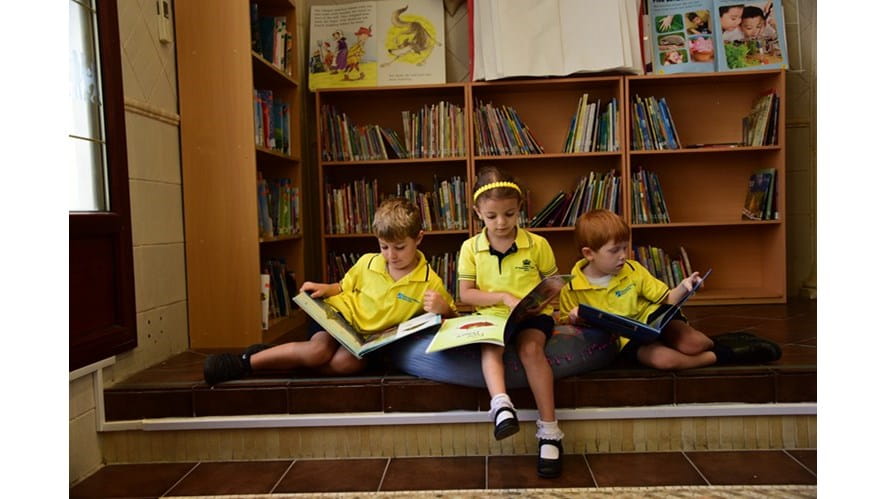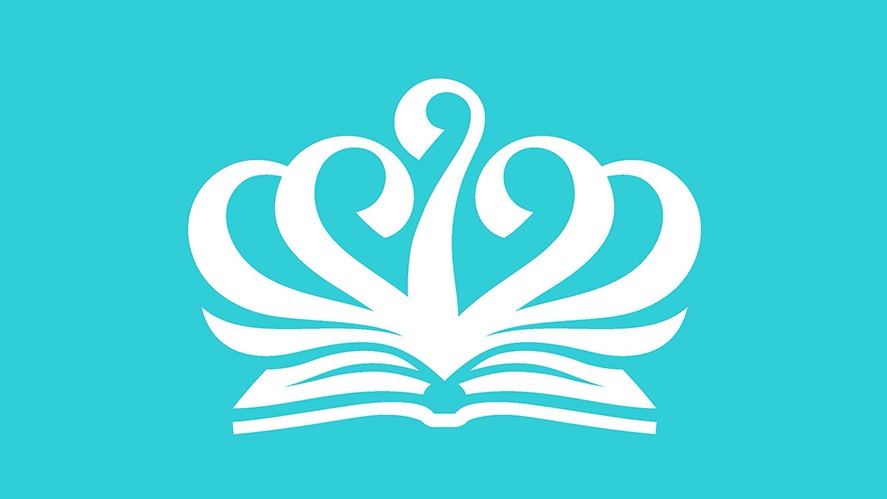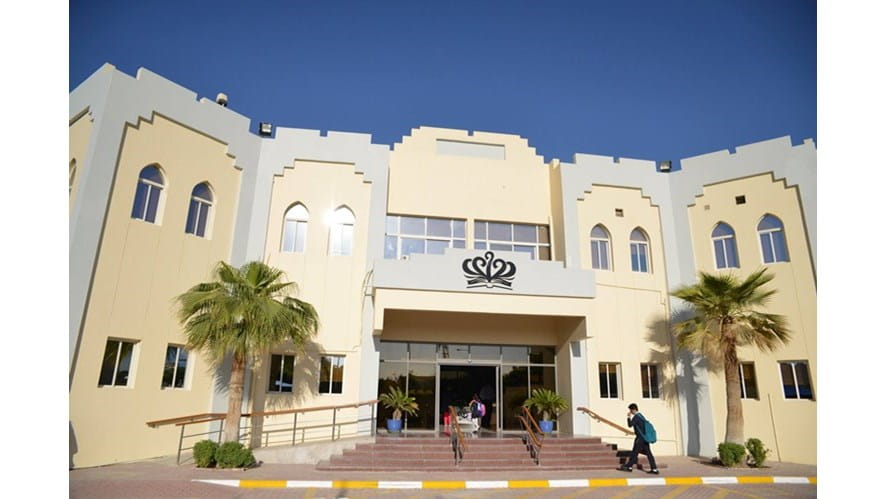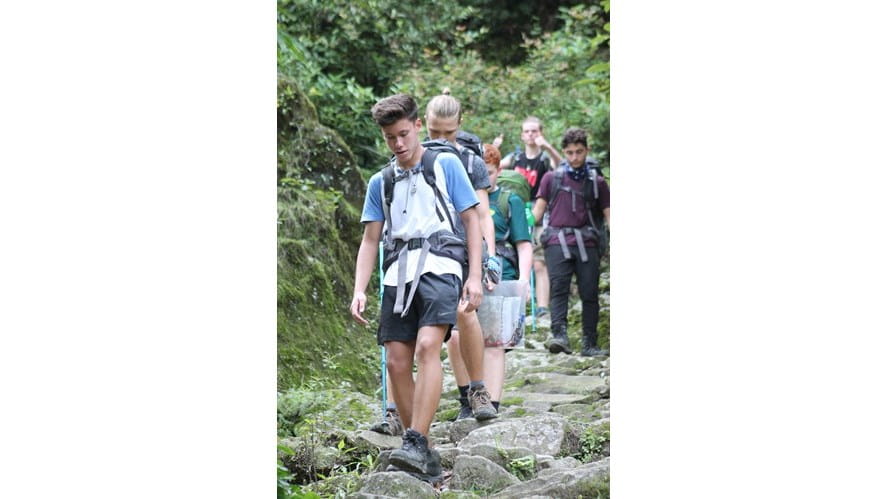Reading is to the Mind what Exercising is to the Body
Immersing yourself in a book has the ability to unlock your imagination, transporting you into a world of wonder and unlimited possibilities.
Teachers and parents place a great deal of importance on reading without asking why the ability to read is so important. Before we had writing, we still survived and we still learned so what is it that this invention gives us? Perhaps the answer is obvious but it is still worth thinking about.
Children begin life as observers and listeners, learning to imitate and understand what those around us are doing and saying and then we learn to walk, to talk and to communicate at more and more advanced levels. As we grow, we are tutored in the skills of reading and writing using different vocabularies, different scripts and in different contexts. We learn this skill to access other areas of learning through books or on-line. In our modern world, it is a fundamental and basic requirement for every child to learn to read.
Immersing yourself in a book has the ability to unlock your imagination, transporting you into a world of wonder and unlimited possibilities; this in turn helps to expand your vocabulary, improving memory and focus. Reading promotes logical thinking along with providing a lifelong, enjoyable hobby. It helps at every age with communication skills from the younger children benefiting from being able to explain themselves to older children having greater confidence in presentations, debates and conversations. Parents can use reading as a way to build stronger relationships with their children. Reading a story based on a developmental milestone, a social situation can help ease a child’s stress and encourage children to talk and share feelings with their parents. For instance, if your little one is nervous about starting school, reading a story dealing with this topic shows their anxiety is normal.
A recent article in The Daily Telegraph, British newspaper highlighted a recent study revealing that children benefit more from their father reading them bedtime stories than their mother. It stated, questions posed by men when reading to children were found to have sparked “imaginative discussions” in the study by Harvard University in the US.’ For the full article click here: (http://www.telegraph.co.uk/news/health/children/11895432/Bedtime-stories-its-better-if-dad-reads-them.html). Mark Zukerberg appears to be leading the way after he posted a picture of him reading a baby book about quantum physics to his daughter. This may be a marketing ploy but perhaps it also highlights the alternative approach a father may take to reading with their children.
Reading needs to be part of a child’s daily routine to enhance their speech and academic skills. At home, parent and child can make a special place for reading using floor cushions, book shelves, or even bed sheets. When not try building a reading den in a quiet area? Parents can impart a love of reading by showing enthusiasm and excitement when reading books and making sure that they read too, in front of their children. Remember, from the moment they are born, children imitate and admire their parents and are more likely to pick up and book and read if it is something they see their parents doing and enjoying.
Within the school, libraries and librarians are an essential part of the learning process. School libraries support the curriculum, promote literacy development, increase children’s confidence and enjoyment of reading, and foster lifelong reading habits through the development of carefully selected print collections. They also promote sophisticated picture books and easy reading fiction as “quick reads” to older children, helping to encourage struggling readers to find books that suit their abilities.
At Compass International School Doha, as we approach International Book Week we have two school challenges focusing of reading; Reading Tree; and, Book Charades. Our libraries and librarians are there to support these challenges along with other events and competitions. The librarians and Learning Assistants collaborate with teachers by monitoring and encouraging the children on special reading programmes such as Accelerated Reader.
So, pick up a book and read with your children. Pick up a book and allow your imagination to take you on a journey into another world. If you are looking for inspiration, why not have a look at our elected book list here, set out by age range. Don’t delay, pick up a book today.
Suggested reading for Years 3-6
Contemporary
- Goth Girl and the Ghost of a Mouse by Chris Riddell
- The Story of the Blue Planet by Andri Snaer Magnason
- Wonder by R.J.Palacio
- The Factory Made Bob by Christine Nostlinger
- Echo by Pam Munoz Ryan
- Astrotwins by Mark Kelly
- Escape from Mr. Lemoncello’s Library by Chris Grabenstein
- The Miraculous Journey of Edward Tulane by Kate DiCamillo
Classics
- My Father’s Dragon by Ruth Stiles Gannett
- Charlotte’s Web by E.B.White
- Mrs Frisby and the rats of NIMH by Robert C.O’Brien
- The Phantom Tollbooth by Norton Juster
Non-Fiction
- Journeys of Invention app by the Science Museum
http://journeysofinvention.com/?tpnav=1
- How To Make The Universe with 92 Ingredients by Adrian Dingle
- Alphabetics: An Aesthetically Awesome Alliterated Alphabet Anthology by Patrick Concepcion
- The Red Bicycle by Jude Isabella and Simone Shin
Graphic Novel
- Ares Bringer of War by George O’Connor
- Hidden: A Child’s Story of the Holocaust by Loic Dauvillier
Poetry
- The Red Pencil by Andrea Davis Pinkney
- The Death of the Hat: A Brief History of Poetry in 50 Objects by Paul Janeczko
Suggested reading for Years 7-9
Contemporary
- The Lions of Little Rock by Christie Levinel
- A Long Walk to Water – Linda Sue Park
- Mockingbird – Kathryn Erskine
- My Sister Lives on the Mantelpiece – Annabel Pitcher
- Cinder – Marissa Meyer
- Endgame: The Calling by James Frey
- Shine by Candy Gourlay
- Ways to Live Forever by Sally Nichols
Classics
- Antigone by Ali Smith (Save the Story edition)
- The Outsiders – S E Hinton
- The Adventures of Tom Sawyer by Mark Twain
- War Horse by Michael Morpurgo – The Touchpress App edition
http://warhorse.touchpress.com/?tpnav=1
Non-Fiction
- Animalium by Jenny Broom
- Primates: The Fearless Science of Jane Goodall, Dian
- Fossey and Birute Galdikas
- Line of Fire: Diary of an Unknown Soldier August September
- 1914 by Barroux
- The Boy on the Wooden Box –Leon Leyson
Graphic Novels
- Boxers and Saints Boxed Set by Gene Luen Yang
- Rules of Summer by Shaun Tan
Poetry
- In the Land of the Giants by George Szirties
- Wayland by Tony Mitton
Suggested reading for Years 10-13
Contemporary
- Maggot Moon by Sally Gardner
- Eleanor and Park by Rainbow Rowell
- More Than This by Patrick Ness
- Into that forest by Louis Nowra
- Miss Peregrine’s Home for Peculiar Children by Ransom Riggs
- Aristotle and Dante Discover the Secrets of the Universe by Benjamin Alire Saenz
- Nothing by Janne Teller
- The House of Special Purpose by John Boyne
Classics
- Rebecca by Daphne DuMaurier
- The Great Gatsby by F. Scott Fitzgerald
- Native Son by Richard Wright
- In the Time of Butterflies by Julia Alvarez
Non-Fiction
- I am Malala by Malala Yousafzai
- The Man who Mistook his Wife for a Hat and other Clinical
- Tales by Oliver Sacks
- Death from the Skies: The Science Behind the End of the
- World by Philip Plait PHD
- The Pig That Wants to be Eaten by Julian Baggani
Graphic Novel
- Persepolis by Marjane Satrapi
- Maus by Art Speigelman
Poetry
#BacktoBooksCISD #GetCaughtReadingCISD







